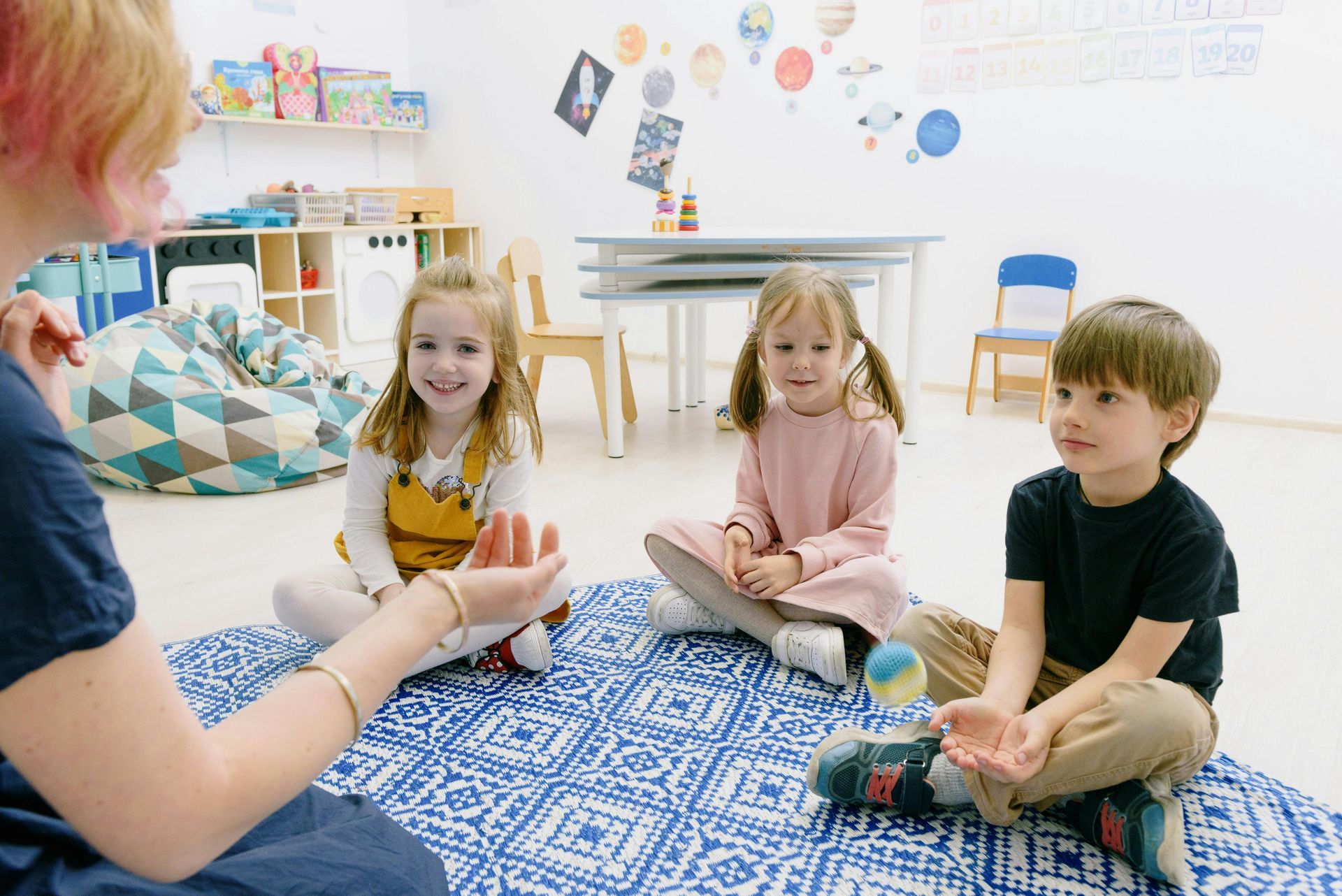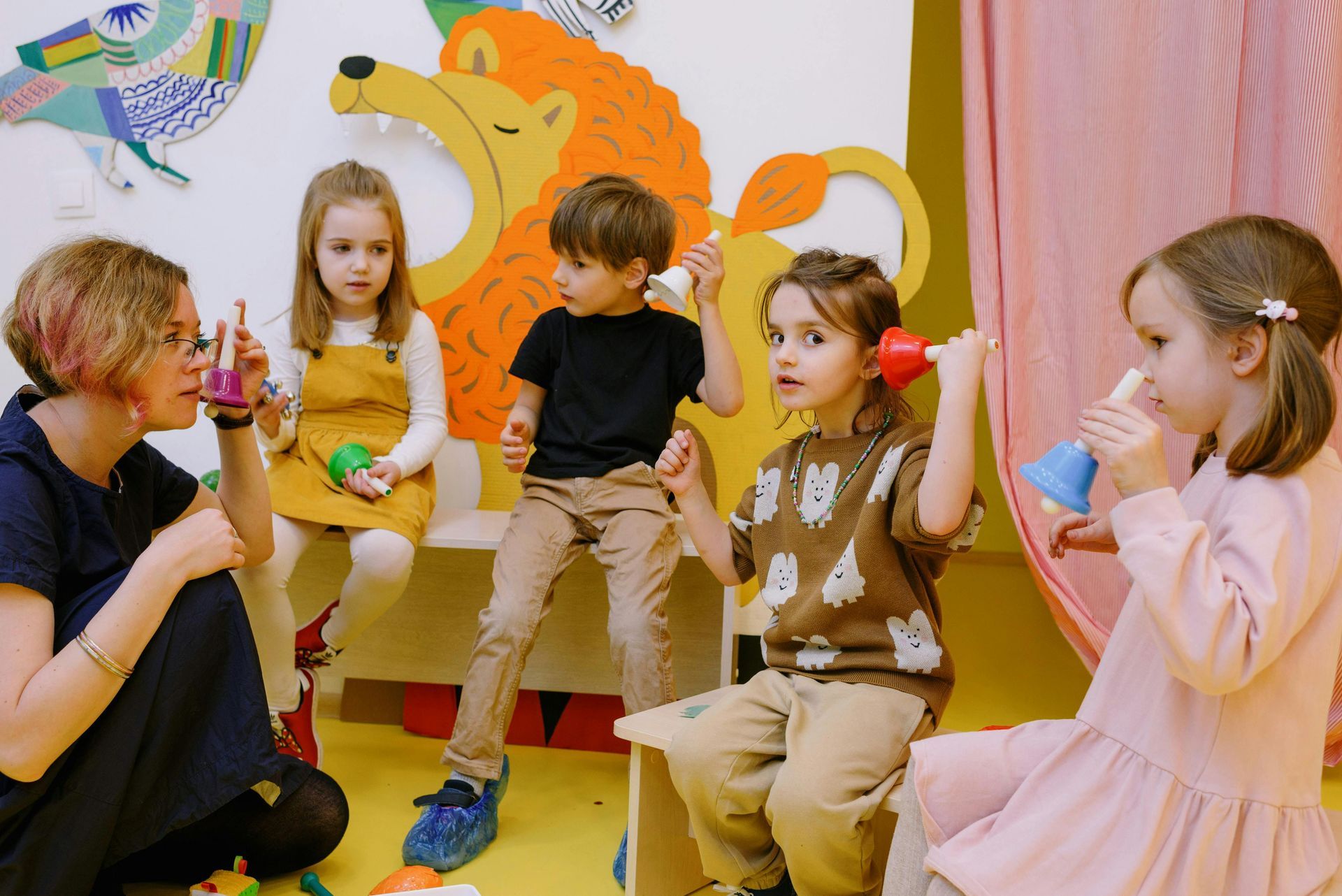The Importance of Emotional Intelligence in Early Childhood Education

Emotional intelligence (EI) plays a significant role in a child’s ability to navigate the world, build relationships, and succeed academically. At Playtime Academy, we understand that nurturing emotional intelligence from an early age is just as important as developing cognitive and physical skills. In this post, we will explore why emotional intelligence is critical in early childhood education, how it impacts a child’s overall development, and the strategies we use at Playtime Academy to foster emotional intelligence in our students.
What Is Emotional Intelligence?
Emotional intelligence refers to the ability to recognize, understand, and manage one’s own emotions, as well as the ability to recognize, understand, and influence the emotions of others. For young children, this means being able to express their feelings in appropriate ways, manage stress and frustration, form positive relationships, and navigate complex social situations.
Children who develop strong emotional intelligence are better equipped to succeed in both their academic and personal lives. Emotional intelligence supports self-awareness, empathy, communication skills, and conflict resolution—abilities that help children thrive in social environments, including schools and future workplaces.
Why Emotional Intelligence Matters in Early Childhood Education
1. Building Stronger Relationships
One of the most significant benefits of emotional intelligence is the ability to form positive relationships with others. In the early years, children learn how to interact with their peers, teachers, and family members. Children with high emotional intelligence can better understand the feelings of others, which leads to more meaningful connections and fewer conflicts. This creates a supportive and collaborative environment in the classroom and beyond.
2. Fostering Self-Regulation and Coping Skills
Emotional intelligence also involves the ability to regulate one’s emotions, which is essential for managing challenges and frustrations. Young children often experience strong emotions—anger, disappointment, excitement—and developing coping strategies at an early age helps them respond to situations in healthy ways. Self-regulation and coping skills are crucial for a child’s overall well-being and for creating a positive, focused learning environment.
3. Promoting Empathy and Compassion
Empathy—the ability to understand and share the feelings of others—is a fundamental aspect of emotional intelligence. In early childhood education, teaching children to be empathetic helps them develop compassion for others, which in turn enhances their social interactions and supports positive behaviors like cooperation and sharing.
4. Enhancing Academic Performance
Emotional intelligence also plays a key role in academic achievement. Children with strong emotional intelligence are better able to focus, manage stress, and maintain a positive attitude toward learning. Additionally, when children can work through frustrations and setbacks in a constructive way, they are more likely to persist through challenges and succeed in their studies.
5. Developing Leadership Skills
Emotional intelligence is also closely tied to leadership skills. Children with high EI are often more confident, able to make thoughtful decisions, and willing to take responsibility for their actions. These attributes make them natural leaders in group settings, whether in the classroom or later in life.
How Playtime Academy Cultivates Emotional Intelligence in Young Children
At Playtime Academy, we believe that emotional intelligence should be nurtured alongside other key developmental areas like cognitive skills and physical growth. We integrate emotional intelligence practices into our daily activities and interactions with children, giving them the tools they need to manage their emotions and develop healthy relationships.
Here’s how we promote emotional intelligence at Playtime Academy:
1. Teaching Emotional Vocabulary
For young children, one of the first steps in developing emotional intelligence is learning how to identify and label emotions. At Playtime Academy, we use age-appropriate language to help children recognize their feelings and express them in a constructive way. Through storytelling, picture books, and role-playing activities, children learn the names for different emotions—such as happiness, sadness, anger, and fear—and how to communicate those emotions effectively.
2. Modeling Emotional Regulation
Teachers at Playtime Academy serve as role models for emotional regulation. We demonstrate how to handle difficult emotions like frustration, disappointment, or excitement in a calm and thoughtful manner. When children see their teachers using healthy strategies for managing emotions, they are more likely to adopt those strategies themselves. We also encourage children to take deep breaths, use “calm-down” corners, and practice mindfulness techniques when they feel overwhelmed.
3. Social-Emotional Learning (SEL) Activities
We incorporate social-emotional learning activities into the curriculum to teach children about empathy, self-awareness, and conflict resolution. These activities may include group discussions, cooperative games, and problem-solving exercises. By participating in these activities, children learn to work with others, respect different perspectives, and manage conflicts in a positive way.
4. Encouraging Positive Peer Interactions
At Playtime Academy, we understand that peer interactions are an essential part of emotional development. We encourage collaborative play, group work, and cooperative games that require children to share, negotiate, and solve problems together. These interactions help children practice empathy, communication, and conflict resolution in a safe and supportive environment.
5. Celebrating Emotional Milestones
We believe that recognizing and celebrating emotional milestones is important for building a child’s self-esteem and encouraging positive behaviors. Whether it’s praising a child for expressing their emotions appropriately or acknowledging their ability to help a friend in need, we celebrate these moments as a way to reinforce emotional growth and encourage further development.
How Parents Can Support Emotional Intelligence at Home
While Playtime Academy provides a strong foundation for emotional intelligence, parents also play an essential role in nurturing this skill at home. Here are some strategies parents can use to support their child’s emotional development:
1. Encourage Open Communication
Create a space at home where your child feels comfortable talking about their emotions. Ask open-ended questions like, “How are you feeling today?” or “Can you tell me what made you happy/sad today?” This helps your child recognize and understand their emotions while fostering a sense of trust and security.
2. Practice Empathy
Show empathy when your child expresses their emotions. Validate their feelings by saying things like, “I can see that you’re upset. It’s okay to feel that way.” This helps children feel heard and understood, which is important for their emotional development.
3. Promote Problem-Solving
Teach your child how to solve problems on their own by guiding them through challenges. For example, if a conflict arises with a sibling or friend, encourage your child to think of possible solutions and guide them toward resolving the situation in a positive way.
4. Set a Good Example
Children often model their behavior after their parents, so it’s important to demonstrate emotional intelligence yourself. Show your child how to handle difficult emotions with calmness and maturity. When children see their parents using emotional intelligence, they are more likely to adopt these behaviors as well.
5. Praise Emotional Growth
Praise your child when they successfully manage their emotions or show empathy toward others. Positive reinforcement helps children understand the value of emotional intelligence and encourages them to continue practicing these important skills.
Explore how early childhood education lays the groundwork for lifelong learning and sparks curiosity in young minds by reading our posts on creating a foundation for lifelong learning and fostering curiosity in young minds.
Conclusion
Emotional intelligence is a vital component of a child’s overall development, and it plays a crucial role in their success in school, relationships, and life. At Playtime Academy, we are dedicated to fostering emotional intelligence in our students through intentional teaching, role modeling, and supportive interactions. By developing these essential skills early on, we empower children to become empathetic, resilient, and confident individuals who are well-equipped to navigate the challenges of the world around them.











